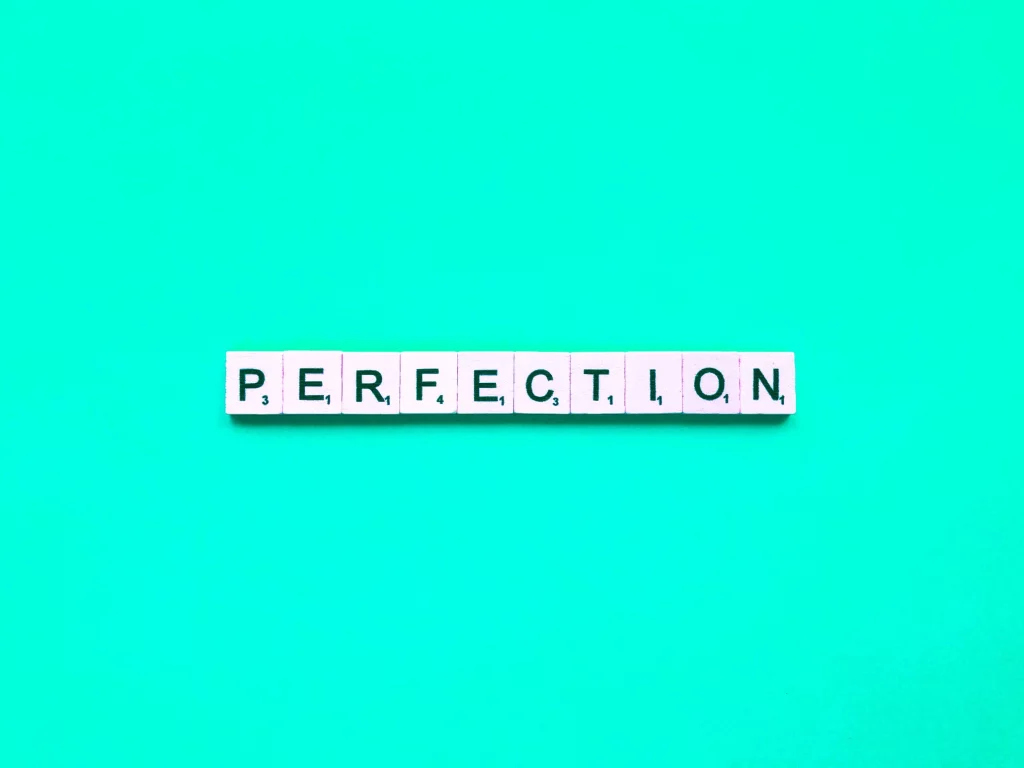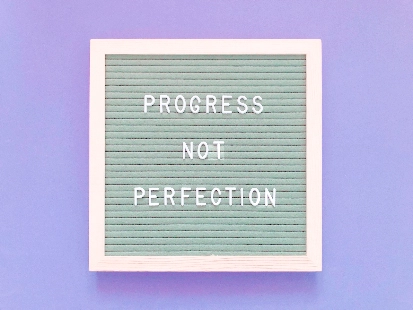13 Genuine Reasons Why You Shouldn’t Strive For Perfection
Although being perfect sounds admirable, it is impossible to be without flaws. People strive for Perfection but can never make Perfection their forte because humans are meant to be flawed.
We wouldn’t advocate striving for Perfection because of the great consequences it may have on your work and output. If you start being perfect and striving for Perfection, you will never be able to meet deadlines, amongst other things.
Striving for Perfection means trying to be the ideal case and giving everything you got to make everything work, whether it is a new project, the setting of your room, or your relations with other people. Perfectionism is a curse because it ignores that every human has some inevitable imperfections, and you can’t really give all your energy to everything. Your energy should be directed only toward things that matter.

13 Reasons Why You Shouldn’t Strive for Perfection
When we chase Perfection, we feel stressed, spread too thin, and unsatisfied with our work. It is, therefore, essential to strive for excellence and moderation and not Perfection. Here are more reasons why striving for Perfection isn’t the best route to take:
1. It’s Not Achievable:
Let’s be honest; how far can one strive for Perfection? It is unattainable and unrealistic. It is nearly impossible to achieve since you’ll always have some room for improvement, and that’s completely okay! Progress and development are better than striving for an ideal thing.
2. It Hinders Your Personal Growth:
Trying to be perfect makes you fear failure. It makes you feel as if you always need to meet a set of criteria, and if you fall short, you’re a failure. This can develop a sense of fear of failure in you that hinders your way to personal growth, and you stick to certain norms of Perfection instead of letting your creative mind work to explore new opportunities.
3. Striving for Perfection Take Up A Lot of Time:
It can be draining and time-consuming to strive for Perfection. If you always focus on perfecting one specific task, you will let other tasks go imperfect. This will lead to constant distress and not being good enough. Plus, it will consume so much time that you will not be able to focus on other things of importance.
4. It Reduces Your Worth:
When you’re always caught up in a rut and seeking to be ideal in every matter, you will definitely feel inadequate, lowering your worth and self-esteem. On the contrary to feeling good about yourself for this strive for Perfection, you will see yourself as less worthy because most of your expectations would not be met. So instead of being perfect, be realistic and appreciate yourself for every minor progress you make on your journey.
5. It Creates Unrealistic Standards:
Perfectionism is known to set unrealistic and unattainable standards. These standards can make you feel stressed out and under unnecessary pressure hindering your ability to work to your full potential. Ultimately you’ll have to give up, which would take a toll on your further.
6. It Makes You Less Flexible:
When you’re always trying to be a certain way, it will hinder your ability to be flexible in tough situations that are out of control. You would only have learned to react and deal with situations in a certain way, and facing something a bit out of your comfort zone will make you feel dazzled. So instead of being rigidly adherent to predetermined outcomes as perfectionism dictates, try to be open to new and changing situations and deal with them with a creative mind.
7. Missed Opportunities:
Trying to strive for Perfection can cause one to remain in his comfort zone. That comfort zone would probably be a predetermined and tested way he does something. This will lead to many missed opportunities for growth and learning.
8. Reduces Progress:
The constant desire for Perfection will ultimately overshadow the importance of progress. When you’re not valuing incremental improvements in your way of life, you are more likely to get frustrated with your dilemmas. Instead of progressing, you would lead into a loophole of stagnation.

9. Perfectionism Strains Your Relationships:
When tuned to perfectionism, you will ultimately project these unrealistic expectations on your significant other or friends. You will create undue and uncalled-for stress on others, not accepting them for who they are but will be urged to point out flaws and demand correction. This will create an environment of constant judgment and criticism, seriously ruining your personal life.
10. Strive for Perfection leads to a Fear of Judgment:
The fear of being judged, criticized, and turned away for not meeting certain perfectionistic standards can hinder your expression and creativity. So instead of striving to be a certain way, strive for excellence to do things in the best possible way within your means and make certain changes fit for you in that standard while you’re at it.
11. Perfectionism Decreases Your Resilience:
When you’re set to strive for Perfection, you’re undermining your resilience, making it harder to bounce back, recover and set forth from setbacks, failures, and mistakes.
12. Perfection vs. Enjoyment:
If you’re constantly meeting a standard, you’re ignoring your creative potential, urge to explore, and ability to enjoy. You cannot accept and embrace your imperfections, and celebrating progress and work will seem more like a burden than something you’re willing to do with enjoyment.
13. Negative Effects on Your Overall Well-being:
Striving for Perfection may look promising, but it negatively affects mental and physical well-being, increasing stress, anxiety, and burnout. So you’re unlikely to meet your goals this way, even in the most imperfect way.
Final Words:
Striving for personal growth and excellence is important, but seeking Perfection can often be counterproductive and detrimental to your overall well-being. We feel proud and accomplished when we achieve something without compromising ourselves or others. Embrace imperfection– it’s what makes you special!






